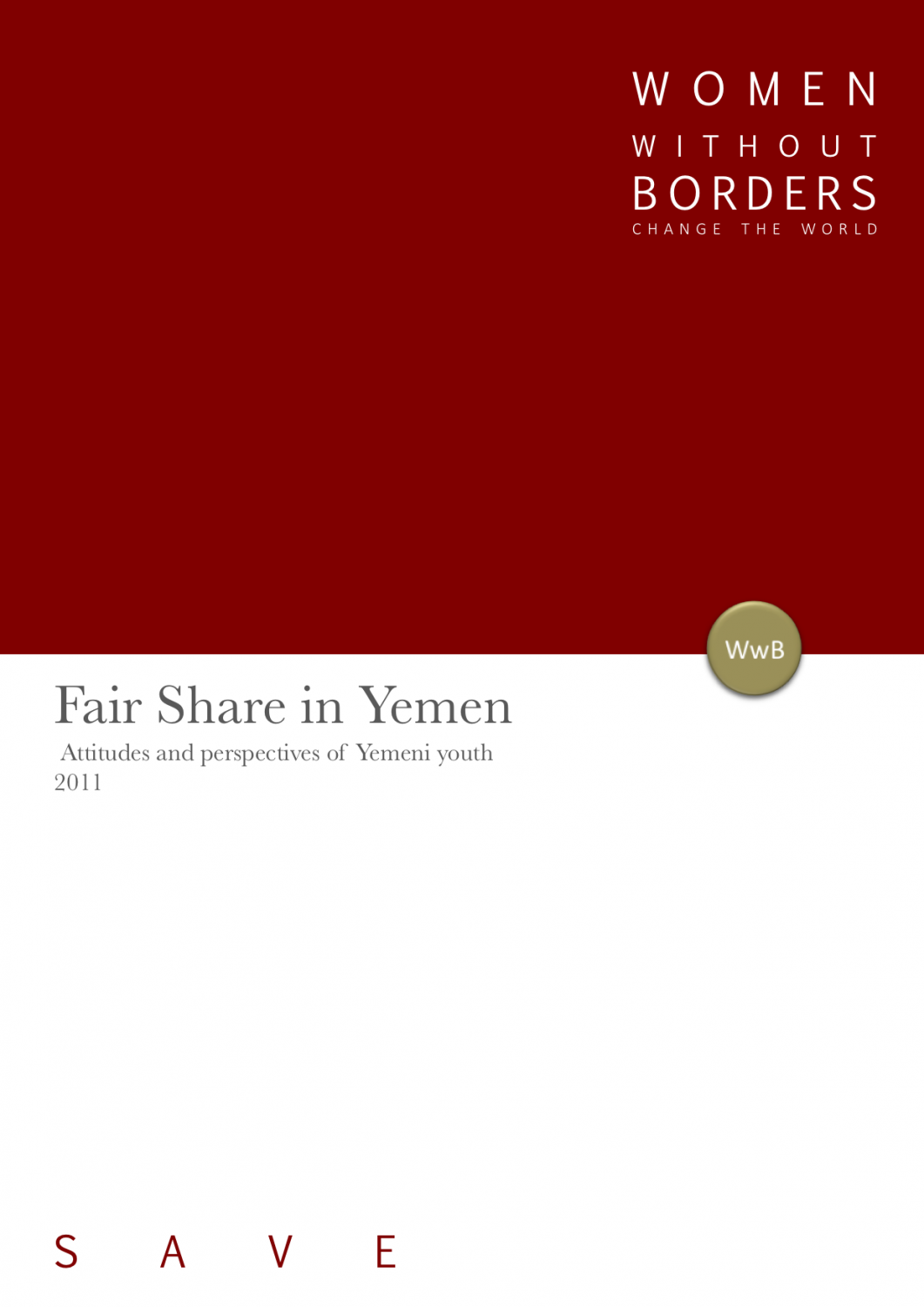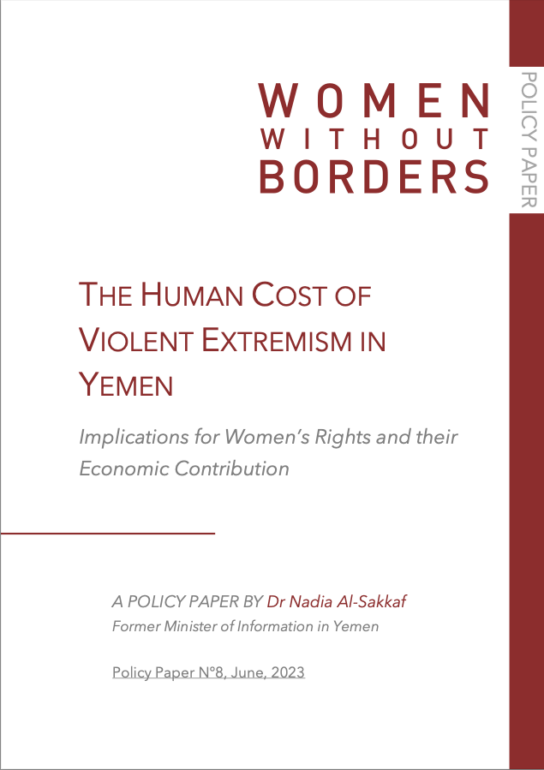Women without Borders (WwB) piloted a comprehensive research study to gain insight into Yemeni university students’ attitudes and perspectives toward a wide range of issues, including the ongoing shift of gender roles in society, violence against women, education, and career aspirations. This report provides an overview of the survey findings and illustrates the wide range of hopes, dreams, and realities of Yemeni youth.
To receive access to this publication, please email us at office@wwb.org.
During the last few decades, demographic changes within Arab countries and globalising trends around the world have produced a clash of traditional values and modern standards which demand new thinking and a new orientation. This survey was aimed at gauging the attitudes of Yemeni university students on a wide range of issues, but with a specific focus on views toward men and women as well as the future. This research sought to determine young people’s openness to shifts in traditional gender roles and to develop an overview of the issues they face on a daily basis. The findings from the survey confirmed much of the current literature on Yemen’s challenges in the fields of development, gender equality and youth issues. They also reflect three important trends among Yemen’s educated youth: 1) women are still largely restricted to the private sphere and discouraged from participating in public life; 2) many women exhibit the influence of a traditional upbringing but express a desire for more openness in many aspects of their lives; 3) men, while more conservative than women on nearly all issues, demonstrate a considerable tolerance for progressive initiatives. The study suggests that opportunities exist in Yemen for engagement with educated young men and women through gender equality training, human resource development, and professional skills training.
To receive access to this publication, please email us at office@wwb.org.



